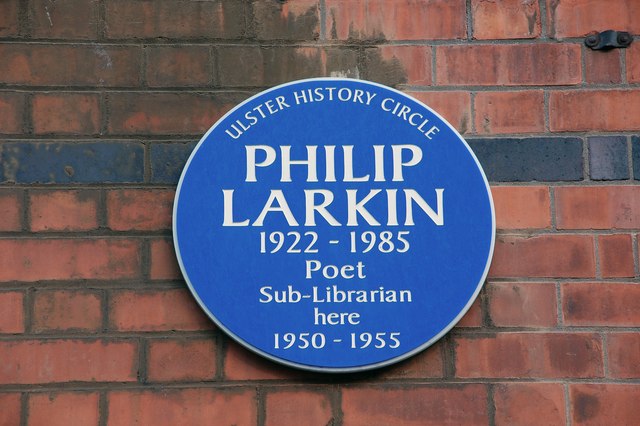Movement poetry is a term that is loosely used to refer to a group of poets who share a few common objectives. The term was first coined by Jay D. Scott in 1954 to refer to writers like Philip Larkin, Kingsley Amis, Thom Gunn, Elizabeth Jennings, Robert Conquest, John Wain, Donald Davie and D. J. Enright whose primary goal was to take English poetry to new heights, eschewing the influences of Imagists and the neo Romantic Symbolist poets.
The Movement poets are primarily opposed to the manifold traits exhibited by modernist poetry of the 1920s and 1930s. Through their works, they try to establish the erstwhile tradition of the English Canon that had been displaced by the onslaught of modernism.
The Movement poets lay stress on formal verse and lucidity in expression and are fervently anti-romantic in their tone and style. Irony and understatement become their leading vehicles of self-expression and they never seek to make grandiloquent claims regarding the superiority of the poet’s role in the creative evolution of a literary work.
The two representative anthologies associated with Movement poetry are Poets of the 1950’s edited by D. J. Enright and New Lines edited by Robert Conquest. Both these anthologies reflect the spirit of the Movement poets and their ideal of poetry. These works also offer a contrast between the Movement poems and the poems of the earlier decades.
According to Muhammad Naeem, the main difference is that they do not subscribe to any “theoretical constructs or to any agglomerations of unconscious commands” and is “free from both mystical and logical compulsions”, and “empirical in its attitude to all things”.
However, the Movement was not really a highly organised group with a neatly sketched agenda and common principles. The poetry of its members displays a marked difference in their poetic diction and treatment of themes. In spite of their idiosyncratic differences on a creative level, they do agree on a few common tenets that they tried to espouse through their poetry.
Philp Arthur Larkin (1922-1985) is an English poet who is associated with the Movement School of poetry. His poetry is characterised by a pessimistic strain that offers a rather dour commentary on contemporary life.
His tone is never ecstatically emotional and he maintains a composed poise in his renderings on post-war society. Though he was offered the post of England’s Poet Laureate in 1984, Larkin preferred to stay away from the limelight and consequently declined the offer. His shy and reclusive nature is reflected in his works as well where his remote and lucid style offers a marked contrast with some of his more vociferous counterparts.
Many critics point out that Larkin’s early poetry quite distinctly reflects the influences of W. B. Yeats and Thomas Hardy. Nevertheless, Larkin manages to find his own unique and sensible ideal of articulation that helped him to comment on the inadequacies of contemporary society in a darkly humorous tone.
Though despair is the predominant note in his works, he couches it in a wry and self- deprecating humour. Alan Brown john aptly comments on Larkin’s uniqueness when he says that the poet produced “the most technically brilliant and resonantly beautiful, profoundly disturbing yet appealing and approachable, body of verse of any English poet in the last twenty five years” (qtd. in Poetry Foundation).
Philip Larkin’s Style : Larkin is noted for his conversational tone and ordinary themes that earned him a special place in the English Canon. His poems are noted for its intelligibility and Larkin was lauded for his attempts to bring poetry closer to the people.
He often adopts the persona of a common English man in his works and reflects their broken dreams and forlorn anguishes through his poems. The middle class perspective is celebrated in Larkin’s works that cherish the image of a traditional and yet realistic England.
His imagery is noted for its sharpness and keen observations. His word pictures captivate the reader and render a vivid poetic experience. Larkin is a very diligent poet when it comes to rhyme and metre. A close perusal of his works show Larkin’s intricate and detailed attention to rhyme schemes and syntax. In Larkin’s verses, these features add an extra dimension to the comprehension of his poetry and only a discerning reader can appreciate its technical brilliance.
Larkin is first and foremost a realistic poet. Though he does make use of figures of speech and symbols, his poetry is not crowded with these technical devices. The poetic persona employed by Larkin often employs a colloquial tone, one that mirrors the cadences of ordinary speech. His characters are also drawn from real life and therefore do not employ elaborate or extremely eloquent language. Many critics have commented on the drab nature of Larkin’s style and its tedious repetitions. One may conclude that though Larkin has his share of detractors, nothing can diminish his significant role in shaping postmodern British poetry.


Well I really liked reading it. This tip offered by you is very helpful for good planning.
It helped me write my assignment.
Thanks
Great. Dada keep it up.
Sir, Can you provide some notes on Philip Larkin ?
Sir, I know you. I am also a student of English Literature. This is really a great answer.
Great article.